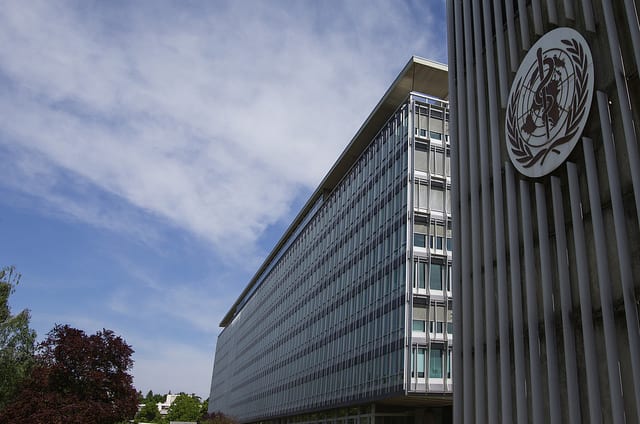
WHO voices concern over British immigration policies after researchers refused entry
pharmafile | October 10, 2018 | News story | Research and Development | WHO, academia, immigration, research, universities
The World Health Organization (WHO) has expressed concern over the UK’s immigration polices, after a number of academics were refused entry into Britain in order to attend the Global Symposium on Health Systems Research hosted in the coastal city of Liverpool.
Dr Masoud Dara, a communicable diseases coordinator at the WHO, commented: “International events are better organised in countries where the invited participants can more easily attend. The tough immigration policies may have impact on academic cooperation, if specific measures are not put in place to facilitate scientists’ travel to and from various countries.”
The call has come after the organisers of the Global Symposium on Health Systems Research declared that at least 10 of the event’s 2000 registered delegates had been affected by the UK’s immigration policies.
Sabu Kochupurackal Ulahannan, a researcher from India who was denied a visa commented on the situation in a blogpost: “The opportunity to network with people from around the world, learn from an international workshop, and represent the voice of the marginalized people I work with were all denied with the rejection of my visa. Why? Because I belong to a lower income group from a lower- middle income country (LMIC)?
Was it not enough that I had received a scholarship to cover the full cost of attending the symposium and the scholarship award documents had been submitted with the visa application? And what does this visa rejection mean? In reality, it shows that even if someone from an LMIC receives a full scholarship to attend such an international symposium, that person must also belong to an upper or middle-class family that is able to maintain a sufficiently high bank balance for the minimum three months that is required, in order to be granted a visa to attend such an event.”
The UK’s immigration policies came into question last month too after a Nigerian lawyer was denied entry in order to attend an African studies conference at Cambridge University.
Louis Goss
Related Content

Bayer and Aignostics to collaborate for AI oncology research
Bayer and Aignostics have announced that they have entered into a strategic collaboration for several …

WHO recommends new vaccine for prevention of malaria in children
The World Health Organization (WHO) has announced that it has recommended a new vaccine, R21/Matrix-M, …

BMS shares new research and development plans at the company’s R&D day
Bristol Myers Squibb (BMS) recently held a Research and Development (R&D) Day in New York, …








